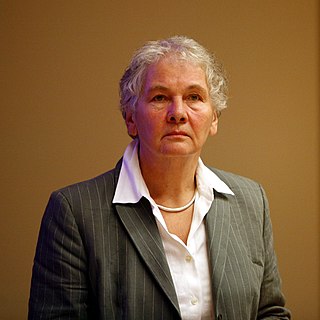Top 29 Quotes & Sayings by Christiane Nusslein-Volhard
Explore popular quotes and sayings by a German scientist Christiane Nusslein-Volhard.
Last updated on April 12, 2025.
In systemic searches for embryonic lethal mutants of Drosophila melanogaster we have identified 15 loci which when mutated alter the segmental patterns of the larva. These loci probably represent the majority of such genes in Drosophila. The phenotypes of the mutant embryos indicate that the process of segmentation involves at least three levels of spatial organization: the entire egg as developmental unit, a repeat unit with the length of two segments, and the individual segment.
The three of us have worked on the development of the small and totally harmless fruit fly, Drosophila. This animal has been extremely cooperative in our hands - and has revealed to us some of its innermost secrets and tricks for developing from a single celled egg to a complex living being of great beauty and harmony. ... None of us expected that our work would be so successful or that our findings would ever have relevance to medicine.
Not everybody is talented for doing research. I think many women prefer to look for an easier job after their dissertations because it is very demanding. You have to be mobile. You have to move to different places for your post-doc training. And if you aren't successful, it isn't a very pleasant job, either.





















